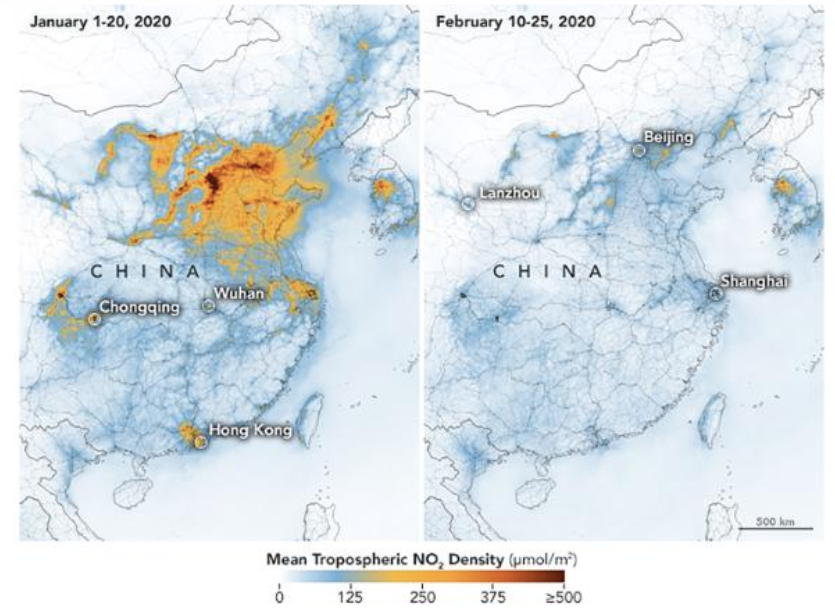It’s safe to say that 2020 has already been a whirlwind year. We’ve faced the Australian bush fires, widespread flooding in the UK and rising air pollution contributed to deaths globally. Yet all this seems like the distant past in the face of the current public health crisis.
Before the COVID-19 pandemic, society was undergoing an enormous period of change; the third great transformation in our lifetime.
The first transformation was globalisation, where brands such as McDonald’s and Coca-Cola expanded across the globe. Then there was the rise of digital and Big Tech, seeing the rise of ‘GAFA’ – Google, Amazon, Facebook and Apple.
This third wave of transformation is to a more sustainable, diverse and human-centred society.
The coronavirus pandemic has created unprecedented changes in behaviour which were once thought to be impossible. Subsequently, this may alter how and when this third transformation in society occurs.
What brands need to be asking themselves is will they be able to adapt successfully?
Rules are made to be broken
“In a crisis the rules don’t apply – which makes you wonder why there are rules in the first place,” the filmmaker and author Astra Taylor has observed. One of the key learnings from the current pandemic is that we can break the rules. Things that we’ve previously been told are impossible are entirely doable.
Take childcare, for example. Many now know they can work flexibly and effectively around looking after their children. Similarly, consumption habits are changing – people are learning to be much less wasteful. There’s also been a resurgence in people reconnecting with local communities.
Businesses play a role in all these factors and are showcasing different ways they can serve people as much as profit.
Once things return to normality, we’ll have to push a little bit of the genie back in the bottle; an arm and a leg at the very least. But it’s unlikely we’ll ever push the whole thing back in there.
The third transformation has not just arrived, it’s accelerating.
We’ve been asked for decades now by scientists, environmentalists, governments, business leaders and the next generation to change our behaviour, society and economy to help save humanity.
But the problem has always been addressing the scale and pace that is required for this change. And up until now, we’ve always been told that isn’t possible. That argument simply doesn’t stand up anymore.
Across the world, key decision-makers have proven that when push comes to shove, we are capable of changing habits very quickly. That could mean big changes to lifestyle habits that we once thought were ‘essential’.
For example, China saw huge differences in the amount of clean air over its cities from January to February, resulting from its immediate and almost total shutdown of some of the biggest sources of pollution.
These satellite images will remain ingrained in people’s memories once the smog comes back and they will want something done about it.

NASA Earth Observatory images by Joshua Stevens, using modified Copernicus Sentinel 5P data processed by the European Space Agency
As with the climate crisis, the coronavirus pandemic has proven that individual actions alone cannot solve a global crisis. Systemic changes, organised and facilitated by governments and businesses, are critical to aligning individual and global efforts.
There are, of course, challenges in orchestrating such measures:
1. There is a different psychological challenge to a pandemic response. Humans are good at reacting to immediate threats, such as a global health crisis, but not so hardwired to react with the same intensity to long-term challenges such as the climate crisis.
2. Economic recovery will be a priority for governments, with experts predicting the deepest recession in a generation. As a result, there may be a sharp increase in manufacturing, consumption and pollution.
The brand plan
Many of the behaviours that were common before the COVID-19 outbreak will likely return. But the consumer demand for sustainable products and services will notably increase.
We have proven that we are capable of such measures and the campaign for brand sustainability continues. If anything, the short-term impact of COVID-19 has proven there is little wiggle room for escape.
Brands should expect a changing narrative from scientists, environmentalists and the public alike. They will be more demanding; the message will be “look at what we can do when we work together, and we’re forced to change – there are no excuses anymore”.
That said, brands need to plan the following areas in their post-coronavirus strategies:
1. How to increase clarity and awareness of their current and future sustainability efforts.
2. How to adapt and create products and services that meet an increased sustainability demand from citizens.
If brands tackle these problems, they will be in a strong position to thrive in our new future.

